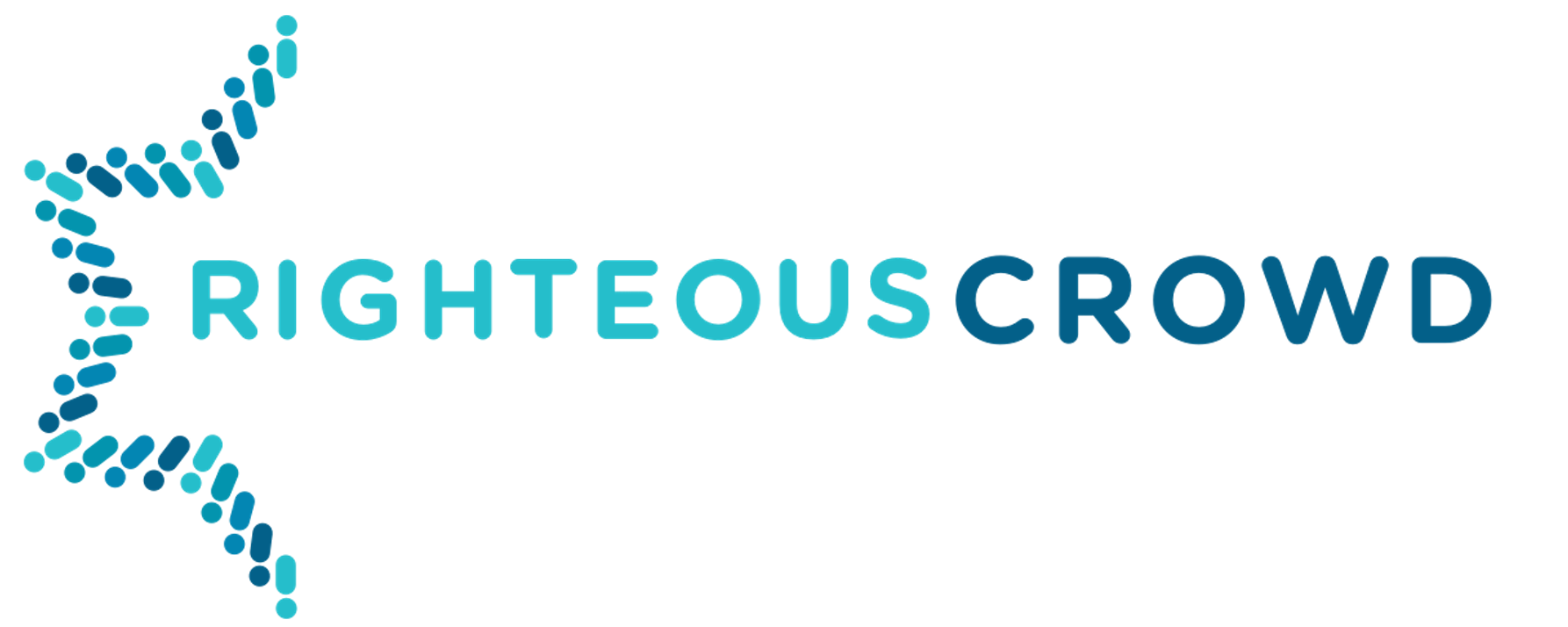Kuchinate on Righteous Crowd this Week!
Kuchinate
Empowering the most vulnerable asylum-seeking women
This week is a double Torah portion, Nitzavim-Vayelech. In Deuteronomy 30:19, we read: "Choose life, that you and your descendants may live!" Inspired by this line from the Torah, we are excited to support Tel Aviv-based Kuchinate that provides asylum-seeking women (i.e., women choosing a new life!) from Africa with a means to earn a livelihood by creating and selling handmade products rooted in African traditions, in a therapeutic and community setting.
Read below what Rachel Gutman of Kuchinate shared this week with Righteous Crowd.
Kuchinate, (To “crochet” in the Eritrean language of Tigrinya) is a cooperative of asylum-seeking African women in South Tel-Aviv. Kuchinate provides a holistic approach to the Jewish value of “caring for the stranger within our midst.” Over 250 women have the opportunity to earn a fair wage through the therapeutic practice of creating colorful baskets and art which is sold in our studio and online while they receive group and private therapy to literally crochet their lives back together after experiencing persecution and hardship in Eritrea and the Sudan and, for many, torture and sexual abuse on their journey through the Sinai. Until the coronavirus hit, Kuchinate had hosted thousands of Israelis and visitors from abroad for coffee ceremonies and crochet workshops, as a means to earn a livelihood and share their stories of their refugee experience, allowing visitors to engage firsthand with refugees in Israel and be inspired by our courageous, creative women.
Our organizational financial structure has been one in which income generated by product sales and events goes to our women, and social services and overhead are financed through “Tzedakah.”
Kuchinate was founded in 2011 by Dr. Diddy Mymin Kahn (clinical psychologist and trauma specialist) and Sister Azezet Habtezghi Kidane (honored by the US Department of State in 2012 as a “hero of our time acting to end modern slavery”). Together they provide the women with one-on-one psychological and pastoral care.
How has Covid-19 impacted Kuchinate?
Pre-corona, Kuchinate members self-generated approximately half of the budget for Kuchinate -- over $200,000 -- from in-studio sales of handmade products and from hosting groups. These sales generated vital income for Kuchinate women to meet basic needs. Now, with no more groups, visits, or large public art exhibits, our traditional sources of revenue have been seriously impacted.
The economic situation in Israel is continuing to deteriorate, with jobs in the hospitality severely impacted. These were jobs in cleaning and dish-washing which were most commonly occupied by African asylum-seekers. Most Kuchinate women have traditionally supplemented their outside jobs with wages earned from basket making and handcrafting, but since the coronavirus, most of their jobs are now gone, as are those of husbands in the cases of the married women. We are seeing a major uptick in women seeking us for work, needing assistance with food and rent.
Furthermore, the women of Kuchinate are an extremely high-risk group. In addition to fears for food and housing security, dwindling or non-existent wages, the psychological burden of the current pandemic overlays and exacerbates the multiple pre-existing traumas that the Kuchinate community members have experienced in their lives. As survivors of trafficking and torture, they are understood to be at particular risk from this pandemic which threatens their mental health to a greater extent than individuals entering the Corona crisis from a less vulnerable starting point. This places an extra burden on our small psycho-social team, necessitating many more therapy hours and social assistance.
Since the start of the pandemic:
1. We have coordinated with the other NGOs to distribute food, diapers, formula, medicine, and health care.
2. Thanks to several generous donations, over the course of the past three months we were able to distribute over $120,000 worth of food vouchers and rent assistance to 250 households, health insurance to 20 women suffering from pre-conditions, and educational technology to 30 families.
3. Our social work staff and volunteers maintain weekly contact with of all of the women to make sure their needs are being met.
4. We consistently disseminate information and directives from the Ministry of Health in English, Hebrew, Arabic, Amharit, and Tigrinya to the entire community of women.
5. We distributed raw materials to the women of the collective so that they could continue to work from home during the lockdown, and will continue to do so in case of likely future lockdowns.
6. We moved most of our sales online and expanded our delivery service in order to sell the products and provide wages to the women. In the span of just two months we increased online sales by 90%.
7. In order to meet online shipping demands, particularly those from overseas, we are shifting our production from basket crocheting to the lighter textile products: culturally inclusive African dolls, purses, masks, and books. We are increasing our vocational training so that all women can learn to sew on a sewing machine, while providing them with the skills they will need for future livelihood.
8. We are initiating a computer literacy program for our ten full-time paid asylum-seeker staff, and an English language program for anyone who is interested.
Are the women meeting in person?
The coronavirus restrictions have fluctuated greatly over the course of the past six months. Currently, the women are coming in to receive individual therapy from Dr. Mymin Kahn and Sister Azia. We are no longer holding group therapy sessions in-person.
The women work in the studio in small groups of five: learning to sew from our sewing teacher who is also an asylum-seeker, creating the African fabric-bound books, and the dolls.
You can further support the women by purchasing their works - Kuchinate ships internationally.
To learn more about Kuchinate, click here.

